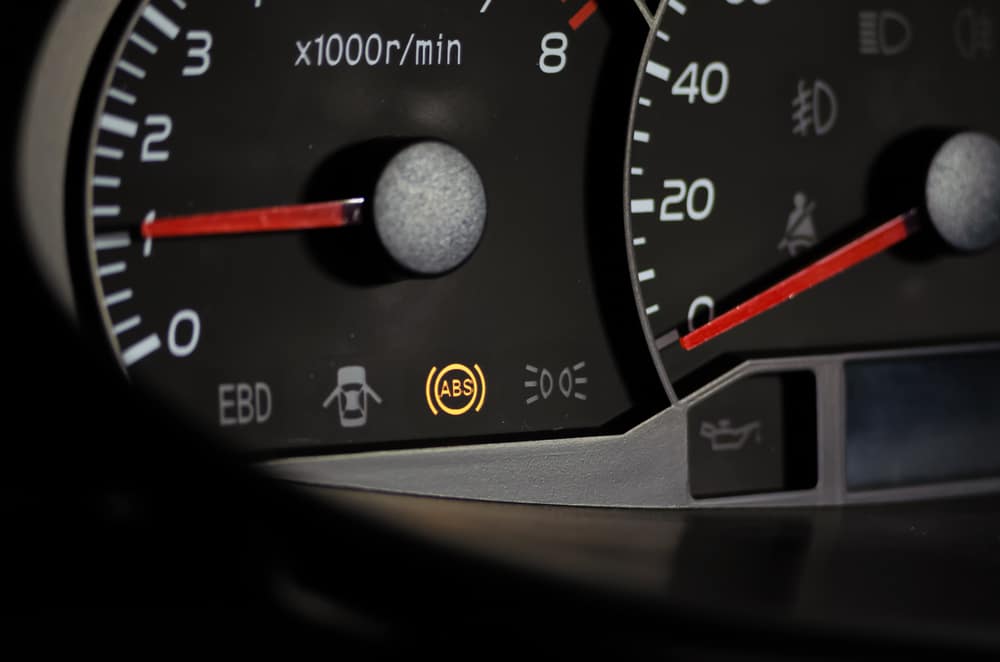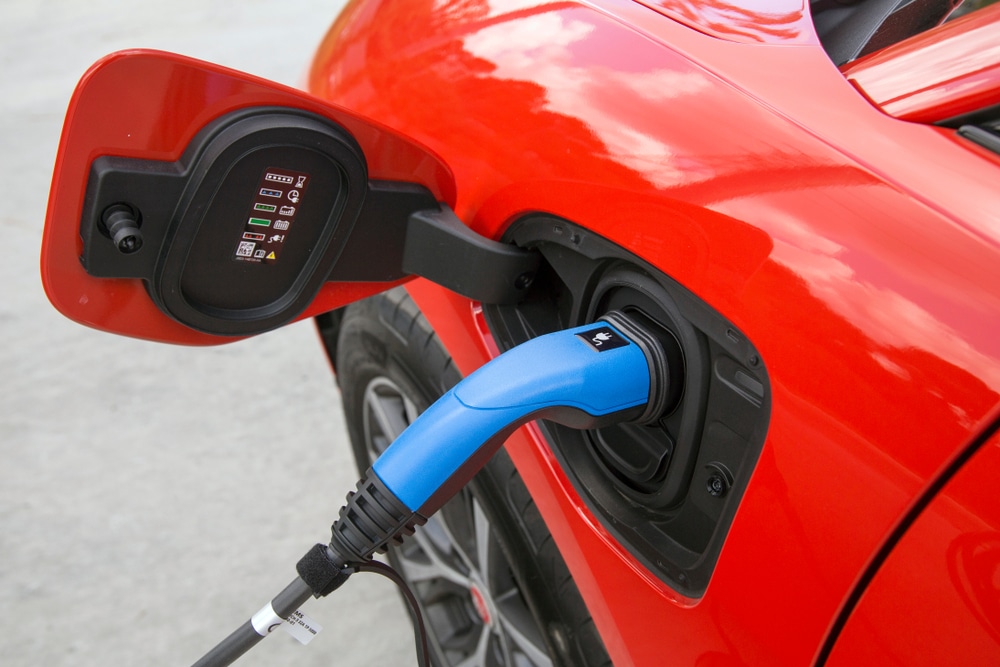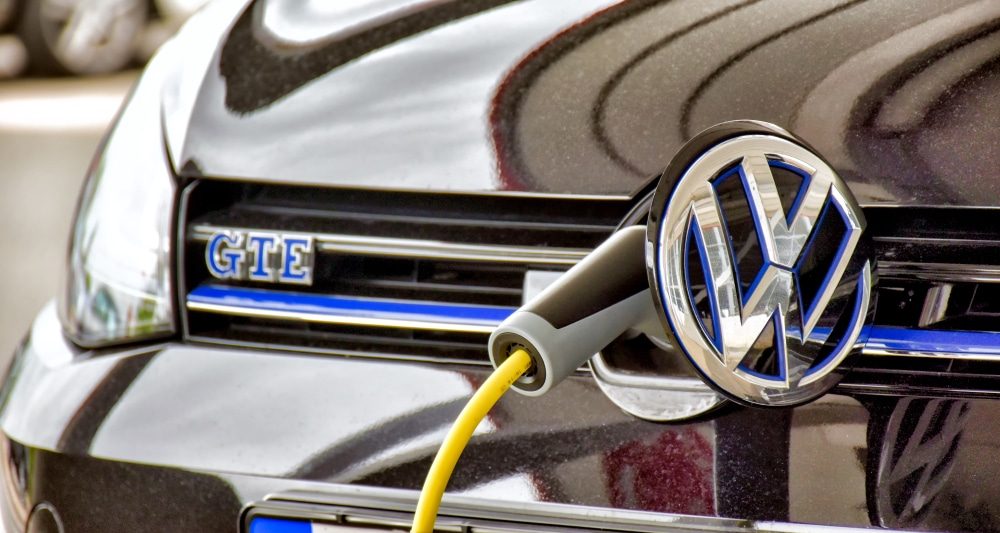Anti-Lock Brakes
You’re driving through Croydon traffic when the car in front brakes hard. You react instantly, but instead of staying in control, the wheels lock, the tyres screech, and the steering goes dead in your hands. That little yellow ABS warning light had been glowing for days, but everything else felt fine. Until now.
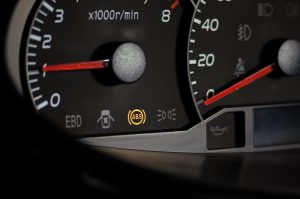
Your anti-lock braking system is there to stop this exact situation from happening. It prevents wheel lock during emergency stops, giving you the grip and steering you need to avoid danger. But when that warning light stays on, your car could be missing its most critical safety backup.
At Smith’s of London in Croydon, we diagnose and fix ABS faults regularly. You can call us on 020 8674 3377 if your ABS light is on. From worn ABS sensors and wiring corrosion to full ABS module failures, we’ve handled many types of repairs over the years.
This blog explains how anti-lock brakes work, what triggers the warning lights, and why ignoring them could put your safety, and your MOT, at risk.
Let’s take a look.
How Anti-Lock Brakes Keep You Steady When Stopping Suddenly
Your anti-lock brakes system (ABS) is designed to step in when a sudden stop could lead to disaster. It doesn’t just slow the vehicle, it makes sure you can still steer while it happens.
When you brake hard, especially in wet or icy conditions, your wheels can lock. That stops them from turning and causes your tyres to skid across the road surface, leaving you unable to steer. ABS prevents this by rapidly adjusting brake pressure at individual wheels to keep them just short of locking up.
The result? Your tyres maintain grip, and you stay in control of where the car goes, even while braking at full force.
It’s a feature that might never kick in during everyday driving. But when it does, it can make all the difference. And if the ABS light is showing, the system may not activate at all.
How the ABS System Reacts When a Wheel Starts to Lock
Under normal conditions, your Anti-Lock Brakes System is constantly monitoring each wheel and doesn’t intervene unless it has to. The moment it detects one wheel slowing down faster than the rest, the system kicks into action.
Each ABS sensor measures wheel rotation speed and sends it to the control unit. If the control unit senses a wheel about to lock, it tells the hydraulic modulator to release and reapply brake pressure in rapid bursts. This happens in milliseconds, several times per second, and helps the wheel keep turning just enough to maintain grip.
You’ll often feel this as a pulsing sensation under your foot when braking hard. That’s the system working, and it’s a vital sign that your anti-lock brakes are doing their job.
If the ABS light is on, this reaction might not happen when it’s needed. Call us on 020 8674 3377 to get your ABS checked as soon as possible. At Smith’s of London in Croydon, we check the full system, from the sensors to the modulator, to make sure your braking control is fully restored.
The Parts That Make Up Your Anti-Lock Braking System
Your anti-lock braking system relies on a precise combination of sensors, electronics, and hydraulic controls. Each component has a specific job, and when one fails, your whole ABS can become unreliable.
Here’s how it all comes together:
- Wheel speed sensors – Mounted at each wheel, these track the rotation speed in real time. If a sensor gives no signal or incorrect data, the ABS light will likely appear, and the system may switch off.
- ABS control unit (ECU) – This is the system’s brain. It collects input from all sensors and decides how to respond. If the unit develops a fault or loses signal, your ABS can’t react properly.
- Hydraulic modulator and pump – These control brake fluid pressure to individual wheels. They release and reapply pressure rapidly when ABS is active. If they stop responding, the system can’t prevent wheel lock.
- Valves and brake lines – These deliver precise adjustments to brake pressure. Any blockage or failure here can reduce the system’s ability to control braking.
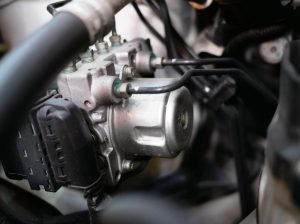
At Smith’s of London in Croydon, we check every element, from the simplest ABS sensor to potential module faults, to get your braking system working as it should. For a better understanding of how your brakes work as a whole, check out our related blogs on Brake Pads, Brake Discs and The Braking System Explained.
How ABS Data Powers Other Crucial Safety Systems
Your ABS isn’t just working to stop wheel lock, it’s providing vital data to other safety systems that rely on precise wheel speed and stability information. When ABS fails, those systems are often affected too.
Here’s how they’re connected:
- Electronic Brakeforce Distribution (EBD) – This adjusts braking pressure between the front and rear wheels based on load and grip. It relies on input from your ABS sensors to apply pressure accurately.
- Traction Control System (TCS) – When a wheel begins to slip during acceleration, traction control limits engine power and applies braking force. It uses ABS sensor data to detect loss of traction in real time.
- Electronic Stability Programme (ESP) – ESP helps correct oversteer or understeer by braking individual wheels to keep the car stable. It uses the ABS network to sense the first signs of instability.
If your ABS sensor fails or the control unit isn’t responding, these features may shut down automatically, leaving you with far less support in poor conditions.
At Smith’s of London in Croydon, we carry out full checks on all ABS-linked systems. If your brake warning light or ABS light is showing, we’ll get to the root of the fault quickly and safely. Speak to our team today on 020 8674 3377.
What Can Undermine ABS Performance
ABS is designed to kick in during the most critical braking moments, but even the best system can falter if something gets in the way. Whether it’s road conditions or a failing component, any disruption can leave you without the support you were counting on.
Slippery or loose surfaces like ice, gravel, or worn tarmac can reduce tyre grip to the point where ABS can’t compensate. The system will still try to prevent wheel lock, but it can’t create traction where there is none.
Mechanical issues are even more common. A failing ABS sensor, frayed wiring, or a fault in the modulator or control unit can all cause the system to shut down. That’s when the ABS warning light comes on, and when the system stops protecting you.
At Smith’s of London in Croydon, we go beyond resetting the light. We trace the source of the issue, whether it’s a sensor, wiring problem, or ABS module fault, and fix it accurately, so your braking system is ready when it counts.
The Warning Signs That Your ABS Might Be Compromised
ABS faults rarely cause dramatic changes in day-to-day driving, but the system could still fail when you need it most. That’s why it’s important to watch for the subtle signs before it becomes a bigger risk.
The ABS light stays on
If the ABS warning light stays illuminated after starting the engine, it means the system has flagged a fault. Until it’s checked, ABS support may not be there when braking gets urgent.
No pulsing in the pedal during hard braking
ABS usually creates a rhythmic pulsing under your foot during emergency stops. If that sensation is missing, the system may not be activating, even when it should.
Brake warning light also shows
If your brake warning light appears alongside the ABS light, it could point to a broader issue in the braking system, and should be treated as urgent.
At Smith’s of London in Croydon, we investigate every alert properly, from failed ABS sensors to deeper faults in the modulator or control unit. If something doesn’t feel right, we’ll find out why.
Why Ignoring an ABS Warning Could Cost You More Than a Repair Bill
If your ABS warning light or brake warning light is on, but the car still seems to drive normally, it’s tempting to keep going. But every journey without a working ABS is a risk, and that warning is there for a reason.
Without ABS, you lose the ability to steer effectively under hard braking. You may also be missing the backup of systems like traction control and stability support, which rely on ABS sensor data to work properly. One moment of lost grip could be all it takes for things to go wrong.
There’s also the legal and financial side. A lit ABS light is an automatic MOT failure. If left unresolved, it can also lead to more expensive faults elsewhere in the braking system, especially if corrosion or wiring issues are allowed to spread.
At Smith’s of London in Croydon, we approach every braking system alert with urgency. If that light is showing, call us. We’ll diagnose the fault and restore your braking confidence before it becomes a hazard, or a costly failure.
Book with Smith’s of London in Croydon When Your ABS Light Comes On
Your anti-lock braking system is there to protect you in an emergency, but only if it’s working properly. If your ABS light or brake warning light is on, it’s time to act.
At Smith’s of London, we carry out full brake system checks using dealer-level tools, including fault tracing for ABS sensors, wiring, and control modules. Whether it’s a minor wiring issue or a more complex ABS module fault, we’ll get it fixed.
Here’s what you can expect when you choose us:
✔ Accurate ABS testing and repair advice
✔ Honest pricing from a team that knows your vehicle
✔ 12-month parts and labour guarantee
✔ Clear communication to keep you in the loop
We’re proud to help keep drivers across Croydon, Beckenham and Coulsdon safe. Check out our {{average-rating}} star Google rating from {{review-count}} satisfied customers.
Call us today on 020 8674 3377 to book your ABS check or brake system repair.
